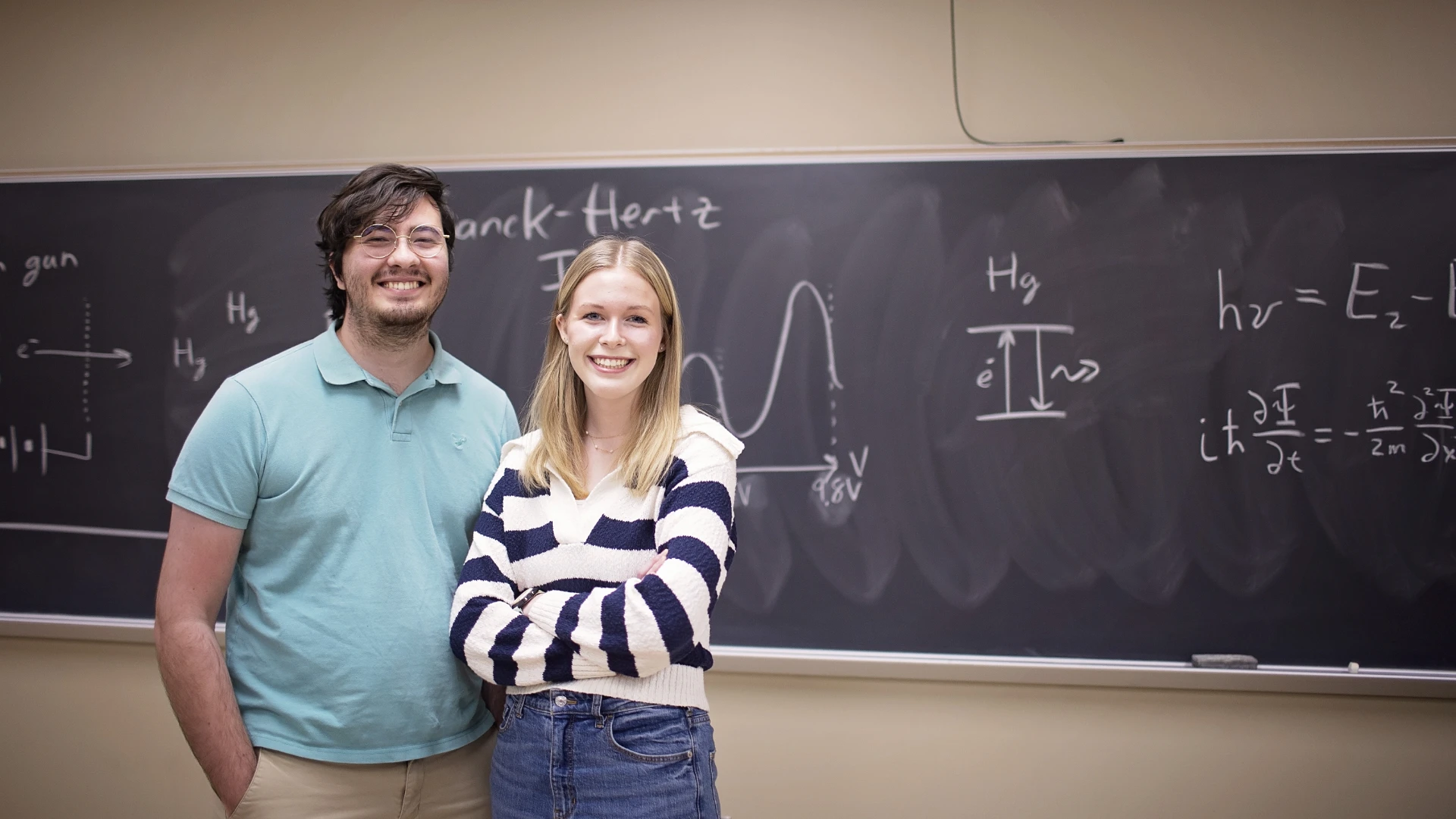
Physics
Physicists seek to discover and understand the laws of nature at their deepest level.
They try to develop mathematical models of the natural world, from the smallest quark to the universe itself. As a profession, physics encompasses many technical fields, from acoustics, astrophysics, optics and nuclear physics, to laser physics, medical physics and condensed matter physics. Many physicists work in governmental, university or industrial research laboratories and others teach in high schools, colleges or universities. Still others can be found in the petroleum industry, NASA, hospitals, electric power plants, the military and managerial positions of business and government.
We offer a four-year course of study leading to a bachelor of science degree in either physics or engineering physics. A minor in physics is also available, as are pre-professional degree programs. The curriculum is composed of classic physics courses presented in a modern, technological setting. They include General Physics, Mechanics, Quantum Mechanics, Modern Physics, Optics, Thermodynamics, Electricity and Magnetism, Electronics, and Nuclear Physics. Small class sizes guarantee individual attention for each student.
Physics majors may join in the research being done by the physics faculty, or they may apply for summer research positions at other universities. Laboratory assistantships are also available for a variety of classes taught during Samford's fall, spring and summer terms.

My professors made a point to talk to me about other things, such as my interests and hobbies. That investment in me was a big help in my time at Samford. —Stevie Carnell, Ph.D.
Academic Programs
Undergraduate Majors
Physics (BA)
Samford’s Physics Major for the BA degree provides the foundation for graduate study and some of the world’s most exciting science careers. Our majors seek to discover and understand the laws of nature at their deepest level as they prepare for work in government, industry, military and education.
Learn More
Physics (BS)
The Physics Major for the BS degree adds a senior thesis and upper-level elective courses.
Learn More
Engineering Physics
Our Engineering Physics Major emphasizes the physical application of the foundational science of the 21st century, with opportunities to research, create and build alongside expert mentors. Earn the BS degree only, or add an engineering degree from a partner university through our dual-degree program.
Learn More
Undergraduate Minors
Physics
A Samford Physics Minor is an excellent complement to any STEM or health care degree, as applied physics continues to transform the technological possibilities of almost every career.
Learn More
Cookie Preferences | Privacy Policy | Software Plugins
Microsoft Excel®
Microsoft Power Point®
Microsoft Word®
Adobe Portable Document Format
